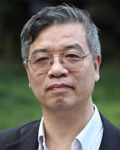| 
In what could be his swansong work, 92-year-old Henry Kissinger, former U.S. Secretary of State and one of the world's foremost authorities on China-U.S. relations, puts forth his vision for the shape of things to come for China, the United States and the world at large. So far, the book, World Order, has been warmly received in Western media circles. In the following piece, Huang Renwei, Vice President of the Shanghai Academy of Social Sciences, presents the view from the opposite side of the fence:
In his latest work, Kissinger candidly and with a measure of pride depicts how the current U.S.-dominated, hegemonic world order came into being. Military power and economic strength constitute the two pillars of the U.S. strategy to maintain the world order as it stands. The United States still takes the lead in terms of these instruments of hard power. By availing itself of various key events in the world's modern history, the country has grown into a global superpower. The core goal of its global strategy has been to build up and maintain a world order guided by its influence. That is why the United States offered a huge supply of "international public goods" after World War II, while at the same time, it launched five large-scale regional wars and undertook scores of military actions, for some of which it has paid a huge price.
Kissinger admits that in the long run, the huge gap between its own hard power and soft power will make it difficult for his country to maintain its status as the world's sole superpower. The United States has found itself in a dilemma primarily related to the issues of power and legitimacy. Neither its principle of "universality" nor the U.S. model of governance has been as operational and legitimate as the country may have wished in other countries, particularly in the developing world. As a result, the country's dominance and the extant world order are faced with overwhelming challenges.
The U.S. concept of world order is increasingly losing the support and sympathy of other countries. Even its European allies often ideologically deviate from it in many aspects. The more the country tries to impose its values and system of governance upon other countries, the larger the morass the international order will find itself stuck in. Americans themselves have begun to question whether or not the propagandizing of "democracy" outside the United States is really in the country's best interests. Kissinger believes that the United States needs to reassess the adaptability of the U.S.-style worldview and then set new objectives, address new questions, seek new driving forces and gain new sources of support. To some extent, the rebuilding of the world order necessitates "de-Americanizing," so that the concept of world order will not be as fraught as it at present is with associations of aggression and self-interest, thus allowing it to be more readily recognized by a greater number of countries.
Is it possible for the United States to realize this strategic change? Kissinger answers in the affirmative. A study of U.S. diplomatic history reveals a continuous process of coping with challenges and adjusting strategies.
Asian order
Kissinger focuses two chapters on the diversity inherent in the current Asian order in addition to the impact that China's rise has had on it. He concludes that the core issue in the Asian order boils down to a question of partnership or confrontation. He summarizes several features of the Asian order by reflecting on both history and the present reality. Asian countries belong to different sub-regions, and within these regions, they differ from one another considerably in terms of social and cultural structures. Diplomatic policies based on these countries' national interests play a predominant role. American factors have also always exerted an influence upon Asia's regional order. In order to prevent a power vacuum or imbalances, the United States has tried to strike a balance among large regional powers.
Kissinger argues that the rise of emerging countries in Asia in the 21st century has incurred strong nationalist sentiments within these states. While much emphasis has been placed on national sovereignty and these countries' core interests, a non-zero-sum cooperation mechanism is also taking shape. The Asian order has posed structural challenges to the world order, calling into question whether or not a trans-Pacific partnership can be established.
Against this backdrop, Kissinger makes a strategic analysis of China's interaction with the current international order.
Historically speaking, China's concept of order did not pose challenges to its Western counterpart. From Kissinger's perspective, among Asian countries, China's concept of international order is the closest to that of the West. China's concept of order, which dates back thousands of years, was never offensive or aggressive in orientation, and even the Great Wall was originally construed as a defensive construction. China did not export its governmental systems, but it was skilled at assimilating foreign culture and approximating it for its own ends. Entering the modern era, while attempting to resist being overly influenced by Western culture, the Chinese also accepted it.
|
